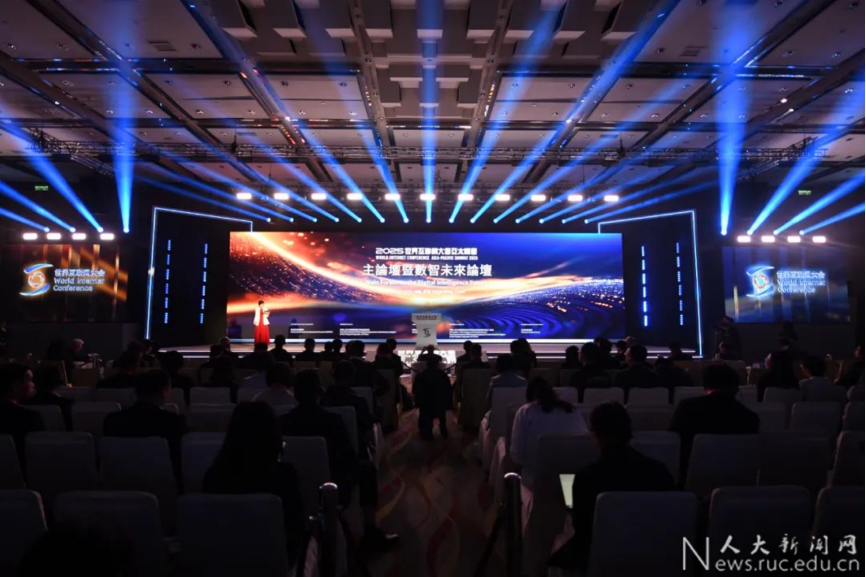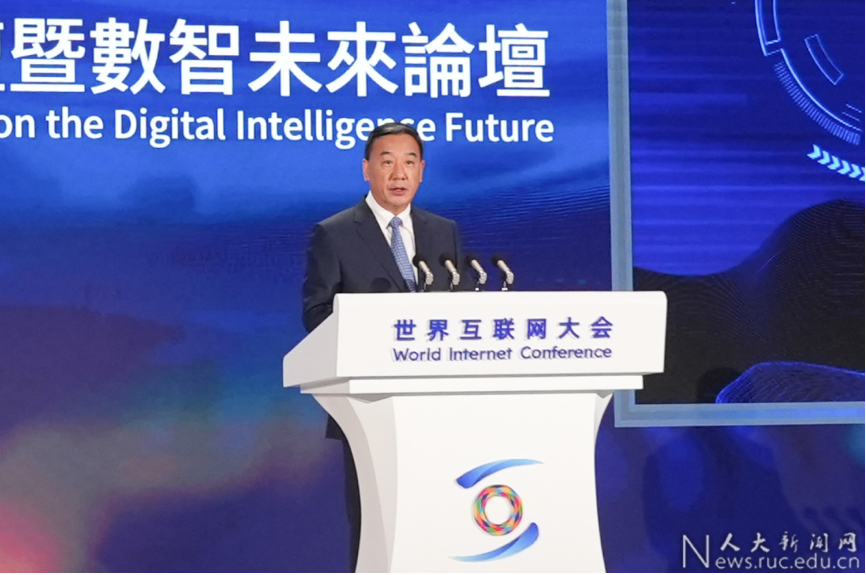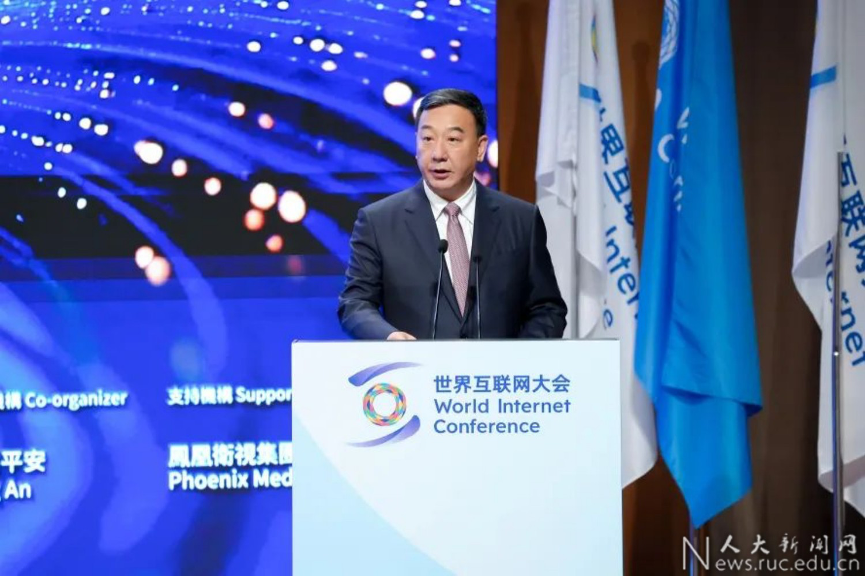The first World Internet Conference Asia-Pacific Summit was held in Hong Kong under the theme “Integration of AI and Digital Technologies Shaping the Future— Jointly Building a Community with a Shared Future in Cyberspace” from April 14th to 15th. The event marks the 10th anniversary of President Xi Jinping’s proposal of the vision for a community with a shared future in cyberspace.

The summit brought together nearly 1,000 high-level representatives from over 50 countries and regions, including government agencies, universities and research institutions, international organizations, enterprises, and civil society groups. The event provided a high-level platform for dialogues within the global internet community to explore a more connected digital future.
Senior Chinese officials attending the opening ceremony included Wang Yong, vice-chairman of the Chinese People’s Political Consultative Conference National Committee; John Lee, Chief Executive of the Hong Kong Special Administrative Region (HKSAR); Zhuang Rongwen, Chief of the Cyberspace Administration of China and chairman of the World Internet Conference; and Zheng Yanxiong, deputy director of the State Council Hong Kong and Macao Affairs Office and director of the Liaison Office of the Central People’s Government in the HKSAR.
Zhang Donggang, Chair of the University Council at Renmin University of China (RUC), attended the opening ceremony and delivered keynote speeches at the Main Forum and Digital Intelligence Forum, as well as the Digital Finance Forum. During the Digital Finance Forum, RUC co-released a new report titled Research Report on Commercial Banks' Data Element-Based Financial Products and Services.
The Main Forum and Digital Intelligence Forum featured three key themes: “Laying the Groundwork for a Smart Future,” “AI Empowering All Sectors,” and “Security and Governance in the Digital Era.”

In his keynote speech titled Building a Community with a Shared Future in Cyberspace: A People-Centered Approach, Zhang Donggang emphasized that over the past decade, President Xi’s vision has evolved from a proposal to concrete actions, offering China’s solution to global internet governance and cooperation.
Zhang noted that digital and intelligent technologies are reshaping human cognition and accelerating the evolution of a new internet era. Facing this “digital-intelligent future,” he stressed the importance of prioritizing humanity in cyberspace governance—ensuring it reflects human needs, values, and aspirations.
He explained that the foundation of a people-centered cyberspace community lies in respecting the centrality of human beings, ensuring that digitalization, networking, and intelligent transformation all move in a direction that benefits the common good of humanity. This involves stimulating human creativity to drive development and innovation, and promoting inclusive dialogue and cooperation in fields such as the economy, technology, and education.
Zhang also highlighted the goal of enabling individuals to achieve holistic development, expanding their intellectual and cultural horizons in the digital era. He underscored the importance of protecting equal rights, advocating that everyone should have fair access to the benefits of internet development and digital progress. Only by fulfilling these principles can the vision of a cyberspace community with a shared future be fully realized.
Zhang emphasized the essential role of universities in building a human-centered cyberspace. He stated that higher education institutions not only nurture future talent and advance scientific research but also serve as bridges for cultural understanding.
He called on universities to promote interdisciplinary collaboration between the sciences and humanities, contribute innovative solutions to the digital transition, and cultivate a new generation of high-caliber talent who embrace shared human values—peace, development, fairness, justice, democracy, and freedom.

During the Digital Finance Forum, Zhang Donggang shared insights on how the integration of digital technologies and data resources is transforming the logic of financial development.
He emphasized the importance of using technological innovation to expand the scope and quality of inclusive financial services, facilitating the deep application of AI and other emerging technologies in the financial sector. He also called developing of prudent and inclusive regulatory systems to enhance financial system resilience and international coordination.
Additionally, Zhang stressed the need for interdisciplinary talent—professionals who understand both finance and technology—as a driving force behind smart financial transformation. He noted that cultivating such talent is critical for converting digital potential into sustainable progress.
Zhang reaffirmed RUC’s commitment to combining global vision with local relevance. “RUC is committed to advancing with the times, cultivating world-class talent, and contributing top-tier research to support high-quality digital financial development,” he stated. “RUC aims to foster a more stable, inclusive, and balanced global digital governance system, while strengthening the integration of fintech and inclusive finance in the Asia-Pacific region.”
As a leading institution in the humanities and social sciences, RUC continues to play a vital role in fostering international understanding and contributing to the global discourse on building a shared future for humanity.
In recent years, RUC has launched several initiatives aligned with this mission. In Apr. 2024, RUC established the Department of Digital Economy, integrating digital literacy and humanistic education. In Feb. 2025, RUC opened its second School of Artificial Intelligence in Suzhou to drive technological innovation. In 2024, RUC founded joint research centers focused on civilizational dialogue with France, Hungary, Africa, and Spain. In Nov. 2024. RUC established China’s first university-level School of Global Governance.
These developments reflect RUC’s commitment to educating well-rounded, socially responsible, and globally engaged graduates. Whether advancing disruptive innovation or facilitating cross-cultural exchange, RUC continues to offer its wisdom and solutions to the world.



